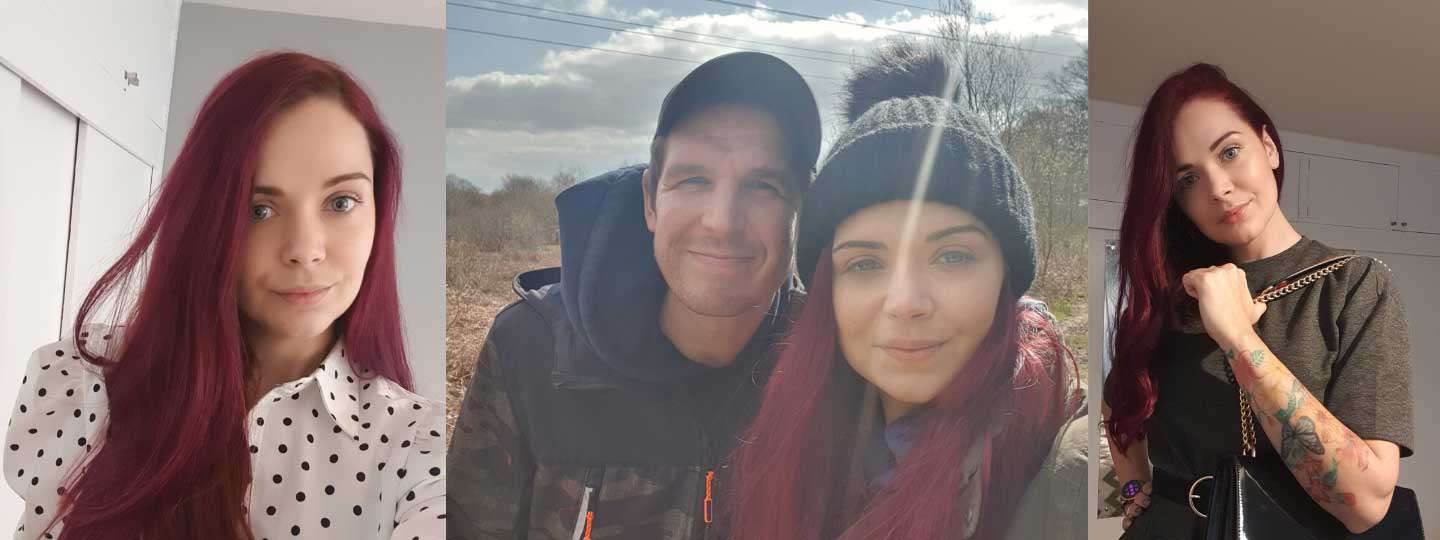"Helping others helps you focus on things other than pain"
19 May 2020
Becci is 32 and lives with rheumatoid arthritis, fibromyalgia and hypermobility syndrome.
She's found help in helping others and has created social media projects to break down stereotypes of what chronic illness ‘should’ look like. Connecting with others living with chronic illnesses is just one of the ways she manages her condition.
"Everyone thought it was growing pains"
In junior school, I remember not being able to sit cross legged, yet I could sit in other awkward positions comfortably. Everyone thought it was growing pains and so I struggled, which was reflected in my behaviour.
My joints felt over flexible, but this didn’t get explained to me until I was 27 when my rheumatologist diagnosed me with hypermobility syndrome in my hips, elbows and knees.
At 23, I went to the doctors because my hands were very swollen. I couldn’t even do up buttons on a shirt or hold a toothbrush, my x-rays were normal but I was diagnosed with polyarthritis. At 24, blood tests showed positive for rheumatoid arthritis as well as the physical inflammation.
A year later my jaw started to dislocate and get stuck, I learnt how to pop it back. I’ve used six biologic medications before sticking with my current one, Cimzia.
I was told I had fibromyalgia and chronic pain and I've had multiple procedures. Since I left work in October 2019, I’ve controlled everything with medication, mindfulness and hydrotherapy which I was doing once a week until coronavirus. For each week I don’t do hydrotherapy, I feel all the hard work and the choice I made to leave employment to focus on my health is slowly slipping away.
"Change is extremely hard to process when it’s a choice made by your health."
I was with my previous employer for 14 years progressing from customer service, then in management for the last 10 years. They were supportive and understanding of my health conditions, it was like being part of a family, instead of just an employee. I enjoyed the job but it was hard to balance this role with my progressing health conditions.
I wanted a better work-life balance, one that was more suitable. I’m hoping after the pandemic, employers will see that more jobs can be done remotely and will be more open to employing people who can only work from home, utilising their skills.
"The need to convince people that the amount of pain I’m in is real."
I’ve come across some medical professionals that don’t always believe what I’m saying. Having awkward stares or conversations when members of the public question my need to use a walking aid and when they say “but you don’t look sick”, or “you’re too young for that" - is something I’m trying to turn into a positive by talking about it.
People who don’t know me often say, “oh you’re lucky you get to stay at home”, for them this is temporary. For me, it’s an adjustment I had to make, to try and balance a life where my health and happiness is prioritised.
"Working on projects and helping others helps you focus on things other than pain."
Having to self-isolate has taken away the little bit of independence I had left. Since social distancing, I’m relying on others as much as possible but there will come a time where a trip into a social environment can’t be avoided and old feelings of anxiety will start to creep in.
When it comes to managing my condition, I’ve found comfort in helping others through my social media project, #myinvisibleproject. I want to break the expected stereotype of how someone should look with a chronic illness.
"The to-do list can bring a great sense of achievement, even on a bad pain day."
I’m a to-do list person with lots of good organisational tips. I’ve already made a list for me and my partner.
At the moment I’m making craft boxes for some children to leave on their doorsteps from surplus in my craft room. All will be wiped down, handled with gloves and i'll keep up my social distancing to help others through this unpredictable time.
"Before, I’d get into a state because I couldn’t control the pain with medication. So, I have learnt a lot from mindfulness."
On bad pain days I’d stay home anyway, I do mindfulness and breathing techniques to help keep pain under control. I use it a few times a week to remind myself to try and stay calm when I’m in a lot of pain.
When you’re in pain, you can forget techniques you’ve learnt, so keeping a list somewhere can help remind you.
Going for walks or hydrotherapy can be painful, but I know there's a benefit from it. So, making sure you remind yourself of the techniques you’ve learnt, and how helpful they can be, is crucial to finding a positive on a bad day.
We’re here whenever you need us.
- If you would like to talk to someone, you can call our free helpline on 0800 5200 520 (Monday to Friday, 9am to 6pm)
- Join our online community
- Stay in touch and follow us on Twitter, Facebook and Instagram.
You might also be interested in...
-
I didn’t want to be seen as ‘the girl with a disease’
Izzie Clough was diagnosed with arthritis when she was nine. Here she shares the journey she’s been on with her condition, from hiding it completely, to finding a job where she draws on her own experiences every day.
-
Arthritis and kitchen hacks: easy ways to eat well
Planning meals, pacing yourself and eating a healthy diet will help you keep your arthritis in check.